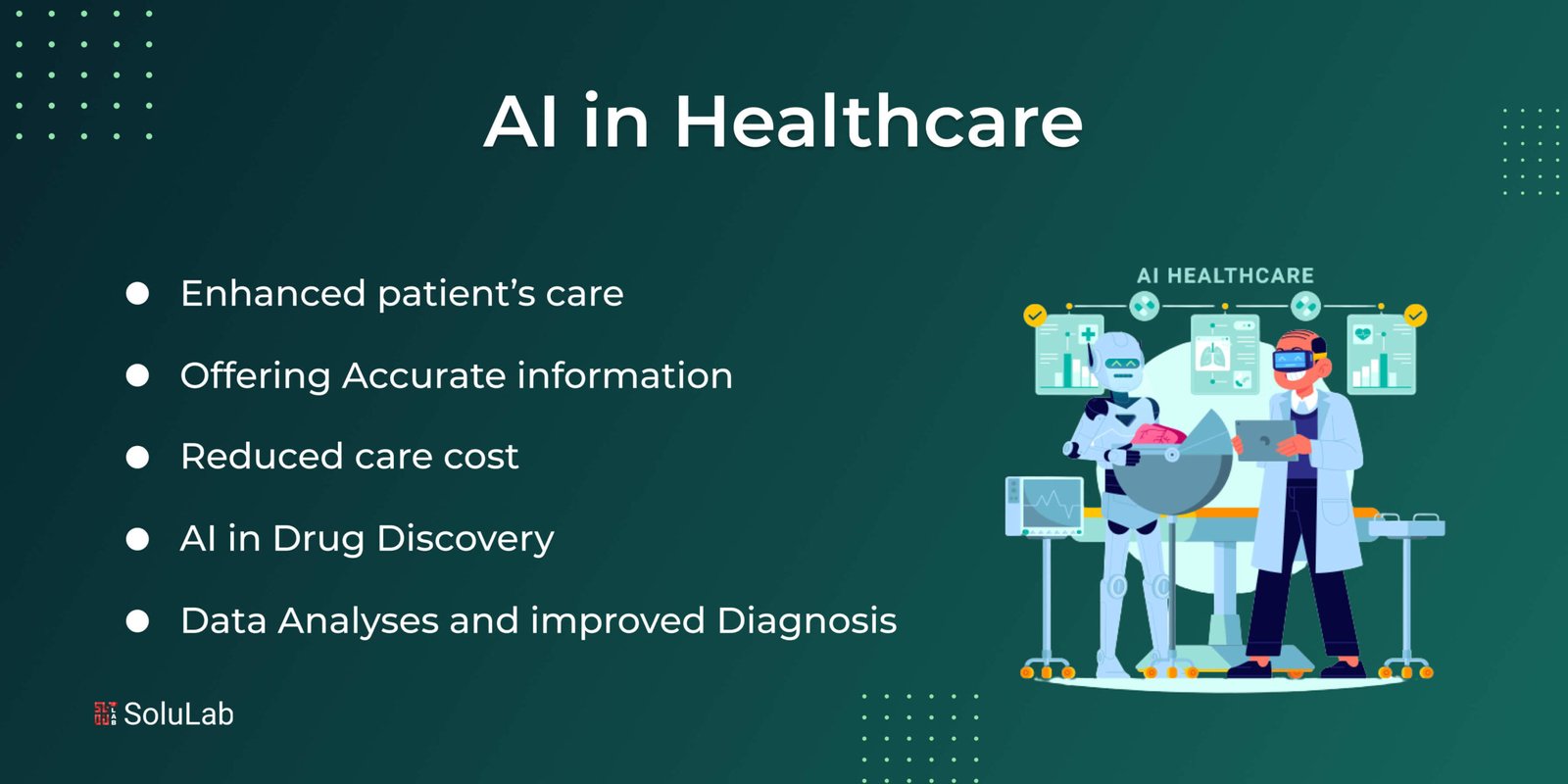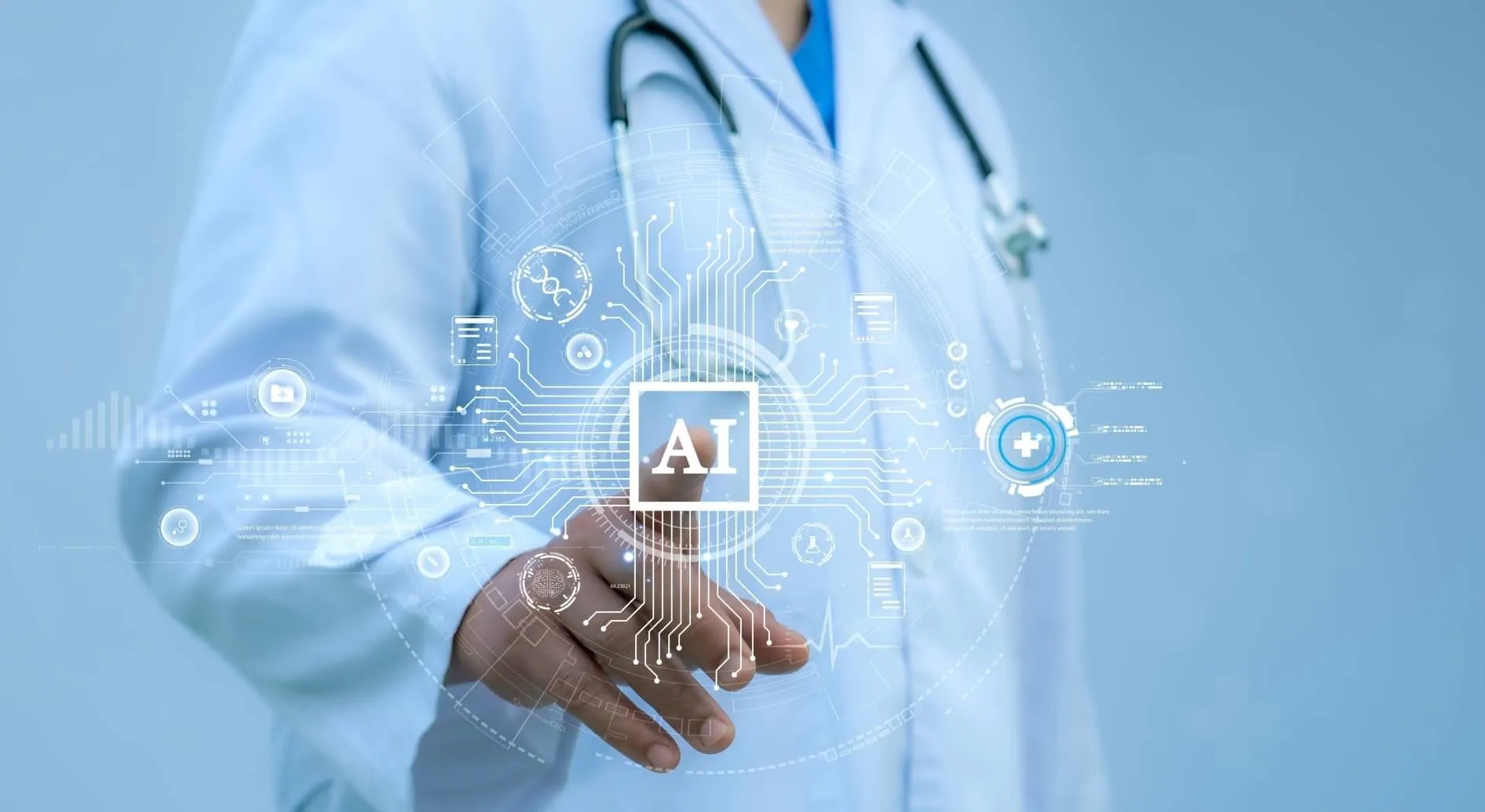Artificial Intelligence (AI) is transforming various sectors, with healthcare being one of the most impactful areas. AI’s integration into healthcare offers unprecedented opportunities for improving patient care, enhancing diagnostic accuracy, and streamlining administrative tasks. This article explores the diverse ways AI advances healthcare and its potential benefits. Advancing Healthcare.

Enhancing Diagnostic Accuracy
AI improves diagnostic accuracy through sophisticated algorithms and machine learning models. For example, AI-powered imaging tools analyze medical images with high precision. These tools detect anomalies such as tumors or fractures that may be missed by the human eye. Moreover, AI systems continually learn from new data, refining their accuracy over time.
For instance, AI algorithms analyze X-rays, MRIs, and CT scans, offering quicker and more accurate diagnoses. Consequently, early detection of diseases like cancer becomes more feasible, leading to timely treatments and better outcomes.
Streamlining Administrative Tasks
Administrative tasks in healthcare can be time-consuming and prone to errors. AI helps streamline these processes by automating routine tasks. For instance, AI-driven systems manage patient scheduling, billing, and medical record management. These systems reduce the administrative burden on healthcare professionals, allowing them to focus more on patient care.
AI also enhances the efficiency of electronic health records (EHRs). By automating data entry and retrieval, AI reduces the likelihood of errors and ensures that patient information is accurate and up-to-date.
Personalizing Patient Care
Personalized medicine is another area where AI plays a crucial role. AI analyzes patient data, including genetic information, to tailor treatments to individual needs. This approach enhances the effectiveness of treatments and minimizes adverse effects.
For example, AI algorithms analyze genetic data to identify the most effective medications for specific patients. This personalized approach improves treatment outcomes and reduces the trial-and-error process often associated with traditional medicine.
Predictive Analytics for Preventive Care
Predictive analytics powered by AI helps in preventive care by identifying potential health risks before they become critical. AI systems analyze large datasets to predict the likelihood of conditions such as diabetes or heart disease based on various factors, including lifestyle and genetic predispositions.
By leveraging predictive analytics, healthcare providers can implement early intervention strategies. This proactive approach helps in managing health conditions before they escalate, ultimately improving patient health and reducing healthcare costs.
Enhancing Drug Discovery and Development
AI accelerates drug discovery and development by analyzing vast amounts of data to identify potential drug candidates. Traditional drug development processes are often lengthy and costly. AI streamlines this process by predicting how different compounds interact with biological targets.
For instance, AI models simulate drug interactions and predict the efficacy of new medications. This capability speeds up the drug development process, bringing new treatments to market more quickly and efficiently.
Improving Patient Engagement and Support
AI enhances patient engagement and support through virtual health assistants and chatbots. These AI-driven tools provide patients with instant access to medical information and guidance. Virtual assistants answer questions about symptoms, medications, and appointment scheduling, offering valuable support outside of traditional office hours.
Moreover, AI-powered tools help in managing chronic conditions by providing personalized recommendations and reminders for medication adherence. This continuous support improves patient engagement and health outcomes.
Challenges and Considerations
Despite its benefits, AI in healthcare faces several challenges. Data privacy and security are major concerns, as sensitive patient information must be protected. Additionally, integrating AI systems into existing healthcare infrastructure requires significant investment and training.
Ethical considerations also arise, particularly regarding decision-making and the potential for bias in AI algorithms. Ensuring that AI systems are transparent and fair is essential for maintaining trust in their use.
Conclusion
AI is revolutionizing healthcare by enhancing diagnostic accuracy, streamlining administrative tasks, and personalizing patient care. Its role in predictive analytics, drug discovery, and patient support further demonstrates its transformative impact. While challenges remain, the potential benefits of AI in advancing healthcare are immense. Embracing these advancements can lead to more efficient, effective, and personalized healthcare solutions.
